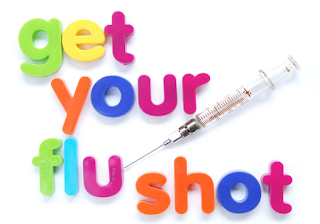There is no doubt that we have all become too little sleep at some point in our lives. For some of us it is an isolated incident precipitated by a specific event such as a death in the family or an upcoming stressful meeting. However, there is evidence more that the United States is becoming a country of chronic sleep deficit citizens.
A recent report from the Centers for Disease Control and prevention of diseases, the percentage of adults who sleep less than six hours per night increased by 31% since 1985. It is likely a number of explanations for this.
They include the growing demands of a 24-hour society, the increasing use of artificial lighting, new lifestyles that promote evening activities, and the widespread use of electronic devices such as laptops and tablets, smartphones devices. The latter are particularly unhealthy sleep because they emit light of blue wavelength, which negatively affects the natural sleep-wake your body and interfere with the cycle of sleep.
Negative health effects of sleep deprivation
There are important consequences of sleep deprivation. At individual level, poor sleep makes you more irritable and depressed, slows reaction time, and negatively affects the physical and mental performance. In fact, 18 hours of continuous wakefulness has the same negative effect on the time legally drunk reaction! (The driver of the truck that hit Tracy Morgan vehicle had been awake for 28 hours straight.)
Also, adequate sleep is necessary for optimal learning and memory. Experiments have shown that staying up all night affects learn new information. Therefore, the proverbial "night" practice, some of us when we were in school, probably exacerbated our test performance and did not help.
Chronic sleep deprivation also charged a toll. Week and a half 6 hours of sleep per night can have the same impact that staying awake for 24 hours straight. And just as important as the behavioral consequences of lack of sleep are the negative effects on health. It is now increasingly clear that sleep deprivation is a risk factor for hypertension, heart disease, diabetes, and - not surprisingly - death before. In addition, lack of sleep alters hormone levels that control appetite, which causes increased hunger and a greater tendency for weight gain. Therefore, the sleep deficiency is a risk factor for obesity!
At least 7 hours of night ZZZS
For both acute and chronic lack of sleep is bad for your health, the CDC Healthy People 2020 objective includes a sleep deficit reduction. However, the objective does not say exactly how much sleep you need. To remedy that omission, the American Academy of Sleep Medicine and Sleep Research Society, the two leading professional organizations in the fields of sleep medicine and research, issued a joint declaration on consensus.
According to current data, adults should aim for at least seven hours of sleep per night for optimum health, and getting less than 6 hours of sleep is associated with poorer health outcomes. At the same time, there is insufficient evidence to determine whether get between 6 and 7 hours of sleep per night is bad for health. A similar document to the National Sleep Foundation is largely came to similar conclusions.
Therefore, it is 7 hours, the number of sleeping magic? Perhaps. Future research could lead to improvements, but for now, must be the goal.
Can you do to be short of sleep for a few days? The answer is not simple. Many people do not get enough sleep during the week and then try to recover their lost sleep on weekends. In such cases, it is usually an improvement in mood and mental and physical performance after sleep "recovery".
However, being able to reverse the effects of sleep deprivation on physical health is less certain. Recent observations indicate that lack of sleep can lead to persistent negative effects on heart rate and secretion of various inflammatory molecules. These can be risk factors for heart disease.
The remedy is simple
What can be done about sleep deprivation? The solution is simple: get more sleep. On a personal level, this means making better choices in lifestyle - for example, the choice to go to bed early at night instead of staying to watch TV at night. For institutions and employers, this means creating a work environment that values results beneficial to have employees who are not sleep deprived: namely, fewer sick days employees, improving productivity and reduction in the use of health insurance benefits.
Although the recipe more sleep seems to be low cost, without expensive drugs needed, personal and logistical obstacles can be formidable. However, a target of at least seven hours of sleep a night can achieve. If a sufficient number of people, companies and institutions make sleep a priority with equal status to good nutrition and fitness, then our society will be healthier and more productive - objectives that any value.
By: Stuart Quan, MD.






















